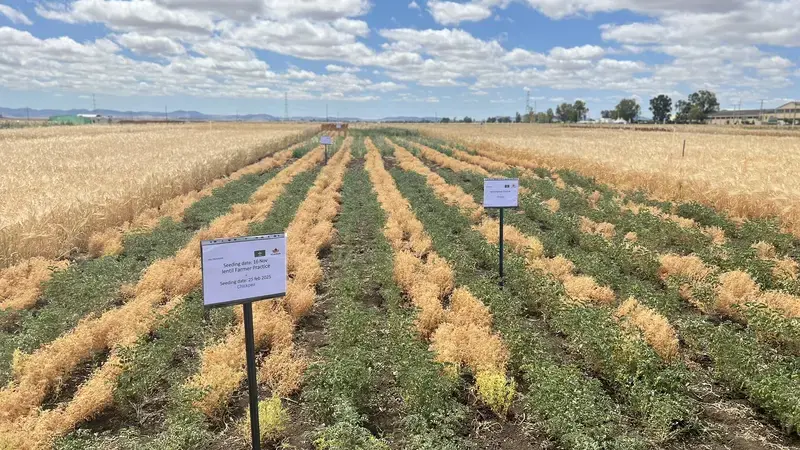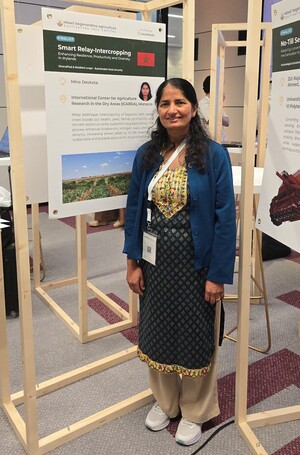ICARDA’s Smart Relay Intercropping Among Top 5 Innovations of MENAT Regenerative Agriculture Programme

ICARDA is proud to announce that its groundbreaking innovation Smart Relay Intercropping was selected as one of the top 5 solutions submitted to Goumbook’s 2024-2025 MENAT Regenerative Agriculture Programme Venture out of 300 applications received from across the region. The MENAT Regenerative Agriculture Initiative aims to initiate a regenerative agriculture awareness movement by mobilising key stakeholders and rallying a supportive ecosystem to scale accessible innovative science, research and nature-based solutions to the Middle East, North Africa, and Turkey (MENAT) region’s unique agricultural challenges — including arid landscapes, land degradation, saline soils, desertification, and water scarcity. the Middle East, North Africa, and Turkey (MENAT) region’s unique agricultural challenges — including arid landscapes, land degradation, saline soils, desertification, and water scarcity. the Middle East, North Africa, and Turkey (MENAT) region’s unique agricultural challenges — including arid landscapes, land degradation, saline soils, desertification, and water scarcity.

Dr. Mina Devkota, the lead scientist behind the Smart Relay Intercropping innovation, presented at the MENAT Regenerative Agriculture Initiative Summit 2025, held on May 15th in Riyadh, Kingdom of Saudi Arabia. The summit provided a platform to showcase the innovation, its potential impact, and to bring together supportive actors to be part of a scaling strategy to achieve widespread adoption in drylands.
Designed with local contexts in mind, Smart Relay Intercropping of lentil (seeded November) with chickpea or quinoa (seeded in February) allows farmers to harvest two crops a year through better utilization of rainfall — lentils tap into early rains, while the second crop benefits from later rains. Their differing root depths also allow efficient water uptake from multiple soil layers. The adoption of Smart Relay Intercropping improves profitability by 582 –5,000 US$/ha and improves water productivity (25%), protein yield (30%-50%) and soil fertility (30%). Smart Relay Intercropping improves the yields of the following wheat crop by 10–15%, compared to wheat-wheat systems. It also lowers the risk of insect and pest infestation, adds more carbon to the soil, and supports both climate adaptation and mitigation, making it a win for not only smallholder farmers but also the planet.
